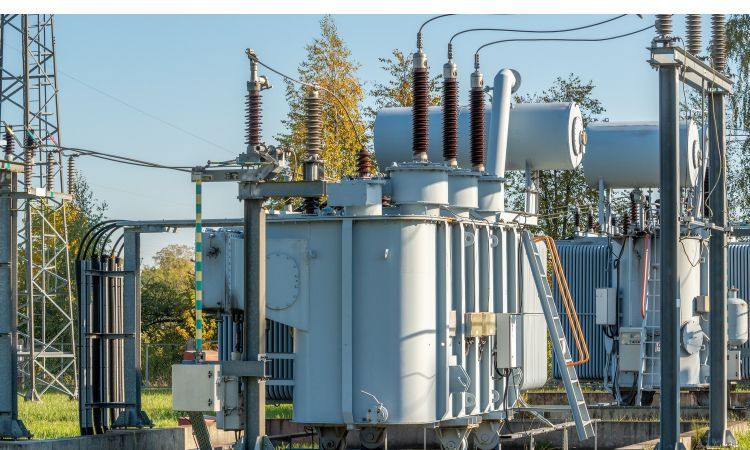India Transformers Market Trends and Outlook
- ankit Vijayran
- Jul 28, 2025
- 3 min read
Powering Progress: A Deep Dive into India Transformers Market
India’s growing energy demands are intricately linked to the country’s economic development and urban expansion. At the core of this energy evolution lies a critical component: the transformer. The India transformers market plays a pivotal role in ensuring efficient power transmission and distribution across the nation—from bustling metro cities to emerging rural centers.
With the government's aggressive push for electrification and renewable integration, transformers are no longer just static machines—they are key enablers of a modern, reliable grid. From utility-scale installations to compact designs for smart cities, the transformer industry in India is undergoing a

significant transformation.
Expert Market Research Insight
According to Expert Market Research, the India transformers market is evolving in response to the country’s infrastructure boom and clean energy ambitions. The market is not only growing in size but also diversifying in terms of technology and application.
Expert Market Research highlights the increasing preference for energy-efficient and eco-friendly transformers, particularly dry-type and oil-immersed variants that support environmental sustainability and reduce maintenance. Urban utilities, metro rail projects, and industrial estates are opting for modern transformers that offer compact design, overload protection, and remote monitoring capabilities.
Moreover, Expert Market Research notes that foreign investments and public-private partnerships are boosting local transformer manufacturing under India’s “Make in India” initiative. This strategic shift is not only reducing import dependence but also enabling customized designs suited for Indian environmental and operational conditions. The study underlines the importance of grid modernization, smart distribution networks, and renewable energy integration as key trends driving the future of the market.
The Backbone of India's Power Infrastructure
A transformer, by function, manages voltage levels and ensures smooth transmission of electricity from generation plants to end-users. In a country as vast and diverse as India, this task is nothing short of monumental. From high-voltage transmission transformers to distribution units installed near homes and industries, these devices make energy flow safe and efficient.
India’s rural electrification schemes, industrial corridor projects, metro rail expansions, and smart grid initiatives all depend on high-performing transformers. In states like Gujarat, Maharashtra, Tamil Nadu, and Andhra Pradesh, rapid industrialization and urban growth have driven significant demand for modern transformers that can handle increased loads and fluctuating demands.
Regional Insights: Transforming Power Delivery Across India
The India transformers market is shaped by distinct regional dynamics:
Northern India, with states like Uttar Pradesh and Punjab, focuses heavily on agricultural electricity distribution. Here, small distribution transformers are crucial to deliver power to farms and rural homes.
Western India, especially Gujarat and Maharashtra, has a high density of industrial and commercial operations, requiring a wide range of power and distribution transformers.
Southern India is embracing renewable energy. States like Tamil Nadu and Karnataka are integrating wind and solar into the grid, which demands smart and adaptive transformer systems.
Eastern India, historically under-electrified, is witnessing increasing infrastructure investments, especially in West Bengal, Odisha, and Bihar, which is driving demand for new and upgraded grid components.
Focused Insight: Renewable Energy Integration and Smart Grids
As India continues to increase its renewable energy share—targeting 500 GW of non-fossil capacity by 2030—transformers are being redesigned to meet the unique requirements of solar and wind power plants. Unlike traditional power plants that offer steady output, renewable sources are variable, requiring transformers that can adapt quickly to changing loads.
Additionally, smart grid technology is gaining traction in urban centers. This involves automation, real-time data monitoring, and integration with renewable sources. Transformers used in such systems must be highly efficient, durable, and IoT-compatible. The deployment of smart transformers in cities like Bengaluru, Hyderabad, and Pune is already showcasing how digital upgrades are enhancing grid reliability and reducing energy loss.
Challenges and Opportunities in the Sector
Despite the growth potential, the transformer industry in India faces its share of challenges. Aging infrastructure, frequent power outages, and overburdened grids highlight the need for rapid upgrades. Additionally, counterfeit products, lack of standardization in some regions, and procurement delays in public sector projects can stall progress.
However, these challenges present opportunities. There's a growing need for upgrading aging transformers, especially in older cities and semi-urban areas. As consumers become more conscious of efficiency and sustainability, manufacturers focusing on low-loss, long-life transformers will stand out.
The Role of Government Policy and Innovation
Government initiatives like Saubhagya, Deen Dayal Upadhyaya Gram Jyoti Yojana (DDUGJY), and Integrated Power Development Scheme (IPDS) have significantly boosted rural and urban electrification. These programs require the installation and maintenance of thousands of transformers across the country.
Moreover, the government is offering incentives for adopting energy-efficient electrical equipment, which includes high-performance transformers. With increasing urbanization and the rise of smart cities, transformer makers are now exploring AI-based condition monitoring systems, smart diagnostics, and real-time data integration.












Comments